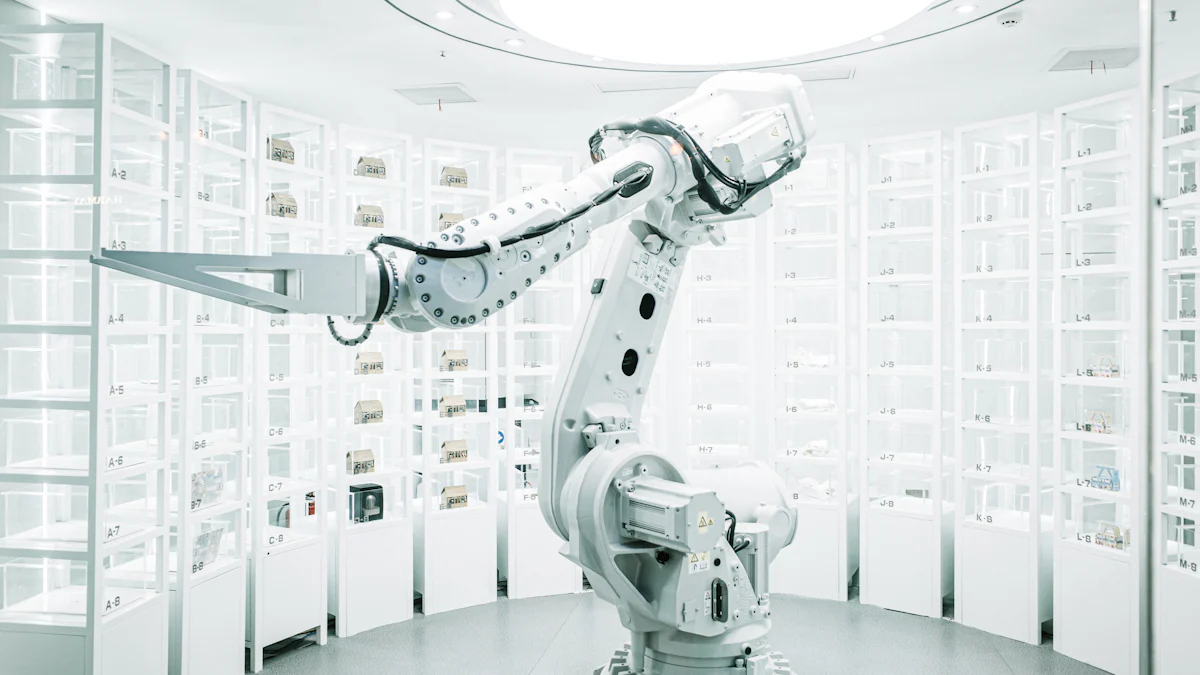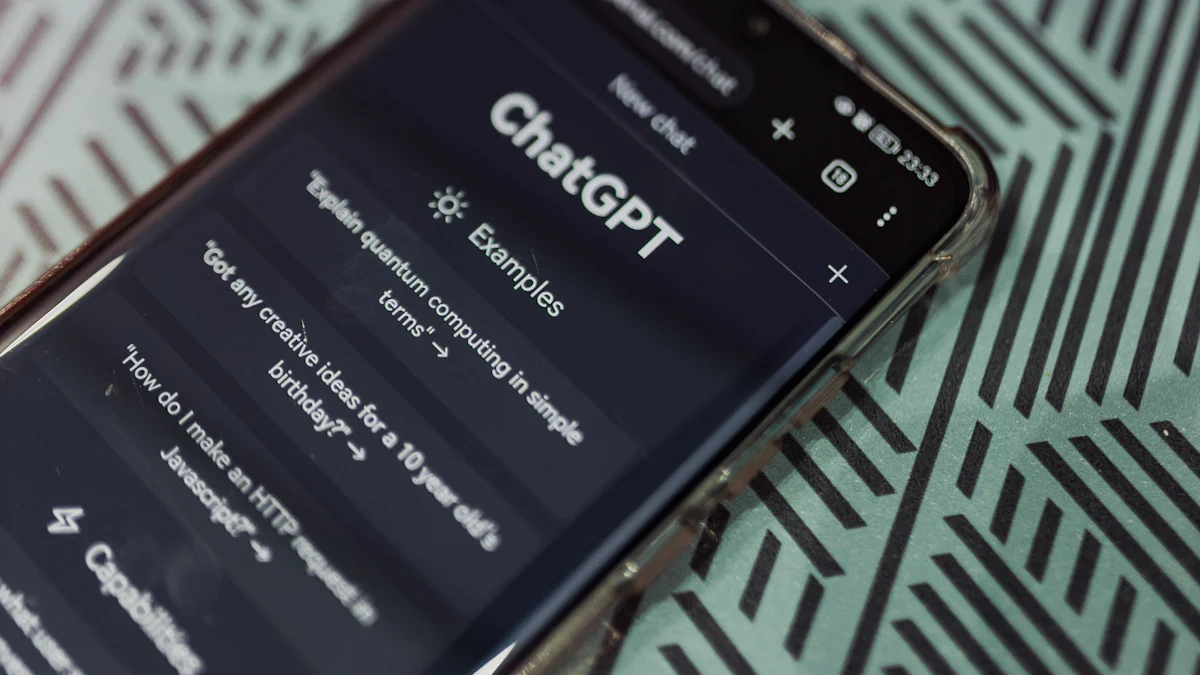Mastering AI Recruitment Software to Predict Candidate Success

AI recruitment software is revolutionizing how you predict candidate success. By analyzing vast amounts of data, AI recruitment software identifies patterns that traditional methods might miss. This technology enhances the efficiency and accuracy of hiring processes. Companies using AI recruitment software are 46% more likely to make successful hires. AI recruitment software considers diverse data points, leading to fairer assessments and more inclusive teams. You might wonder, how does AI recruitment software achieve such accurate predictions? The answer lies in its ability to process information quickly and objectively, ensuring the best candidates are selected.
Understanding AI Recruitment Software
Definition and Overview
AI recruitment software is a transformative tool in the modern hiring landscape. It leverages advanced technologies like machine learning and natural language processing to automate and enhance various stages of the hiring process. By analyzing vast amounts of data, this software identifies patterns and insights that help predict candidate success. You can think of it as a powerful assistant that processes information quickly and accurately, ensuring you make informed decisions.
Key Features of AI Recruitment Software:
Automated Resume Screening: The software efficiently sifts through resumes, identifying candidates who best match job requirements.
Predictive Analytics: It uses data-driven insights to forecast which candidates are likely to excel in specific roles.
Candidate Engagement: AI tools personalize communication, enhancing the candidate experience throughout the recruitment journey.
Role in the Hiring Process
AI recruitment software plays a crucial role in streamlining the hiring process. It automates repetitive tasks, allowing you to focus on strategic activities like candidate engagement and interview preparation. By integrating AI into your recruitment strategies, you can significantly reduce time-to-hire and improve the quality of your hires.
How AI Enhances the Hiring Process:
Efficiency: AI speeds up the hiring process by automating tasks such as resume screening and interview scheduling.
Accuracy: It evaluates candidates based on data and analytics, minimizing bias and ensuring fair assessments.
Data-Driven Decisions: AI provides actionable insights, helping you make informed decisions about candidate selection.
Incorporating AI recruitment software into your hiring process not only enhances efficiency but also transforms how you approach talent acquisition. By leveraging these tools, you can create a more inclusive and data-driven recruitment ecosystem.
Features of AI Recruitment Tools for Predicting Candidate Success

Predictive Analytics for Candidate Assessment
Predictive analytics play a pivotal role in assessing candidates. By analyzing historical data, AI recruitment tools can forecast a candidate's potential success in a role. These tools examine factors like previous job performance, educational background, and skill sets. This method enhances your ability to make informed hiring decisions. Various experts highlight that AI can outperform human judgments by processing a broader range of behavioral signals. This capability ensures a more accurate and valid prediction of future performance.
Resume Parsing
AI recruitment software excels in automated resume analysis. It efficiently sifts through numerous resumes, identifying candidates who best match the job requirements. This process saves you time and effort, allowing you to focus on more strategic tasks. AI-powered tools use advanced algorithms to extract relevant information from resumes, ensuring an objective evaluation of each candidate. This approach minimizes human bias and enhances the fairness of the recruitment process.
Behavioral Analysis
Behavioral analysis and candidate matching are crucial features of AI recruitment tools. By evaluating a candidate's behavior and personality traits, AI can predict how well they will fit into your company culture. This analysis considers various data points, including past interactions and communication styles. AI recruitment tools provide insights into a candidate's potential for success, helping you make smarter hiring choices. This method increases the chances of finding the right person for the job, ensuring a harmonious and productive work environment.
Synergy Between AI and Human Recruiters
In the evolving landscape of recruitment, the collaboration between AI and human recruiters creates a powerful synergy. This partnership leverages the strengths of both AI and human intuition, enhancing the overall recruitment process.
Tasks Best Suited for AI
AI excels in handling repetitive and data-intensive tasks. It efficiently processes large volumes of resumes, quickly identifying candidates who align with job requirements. By automating these time-consuming tasks, AI for recruiters significantly speeds up the recruitment process. This allows you to focus on more strategic activities. AI also provides data-driven insights, helping you make informed decisions about candidate selection. It analyzes various data points, offering actionable recommendations that enhance candidate matching. Additionally, AI for recruiters ensures a precise evaluation of qualifications and potential, minimizing bias and improving the fairness of assessments.
Key Tasks for AI:
Automated resume screening
Data analysis for candidate matching
Providing actionable insights
Tasks Best Suited for Human Recruiters
While AI handles the technical aspects, human recruiters bring empathy and intuition to the table. You excel in building relationships with candidates, understanding their motivations, and assessing cultural fit. These human-centric tasks require emotional intelligence and personal interaction, which AI cannot replicate. By focusing on these areas, you can create a positive candidate experience and foster long-term relationships. Human recruiters also play a crucial role in strategic decision-making, using their expertise to interpret AI-generated insights and make nuanced judgments.
Key Tasks for Human Recruiters:
Building relationships with candidates
Assessing cultural fit and motivations
Strategic decision-making
The integration of AI for recruiters with human expertise creates a balanced recruitment strategy. By leveraging AI's efficiency and human intuition, you can enhance the quality of hires and create a more inclusive recruitment process.
Benefits of Using AI in Recruitment

Efficiency and Speed
AI recruitment tools significantly enhance the efficiency and speed of the hiring process. By automating repetitive tasks, such as resume screening and interview scheduling, AI allows you to focus on strategic activities that require human insight. This automation reduces the time spent on these tasks by about 40-50%, enabling a more streamlined recruitment workflow. As a result, you can quickly identify suitable candidates and make faster hiring decisions, improving overall hiring outcomes.
Bias Reduction
One of the most notable advantages of AI in recruitment is its ability to reduce bias. Traditional hiring methods often involve unconscious biases that can affect candidate selection. AI recruitment software evaluates candidates based on data and analytics, ensuring fair assessments. By focusing on objective criteria, AI minimizes the influence of personal biases, leading to more equitable hiring practices. This approach not only enhances candidate suitability but also promotes diversity and inclusion within your organization.
AI recruitment tools empower you with data-driven decision-making capabilities. By analyzing vast amounts of data, AI provides actionable insights that help you assess candidate engagement and predict hiring outcomes. These insights enable you to make informed decisions about candidate selection, ensuring that you choose the best fit for your organization. Additionally, AI facilitates personalized communication with candidates, enhancing their experience throughout the recruitment process. This enhanced candidate experience leads to better engagement and satisfaction, ultimately contributing to successful hiring outcomes.
AI recruitment tools empower you with data-driven decision-making capabilities. By analyzing vast amounts of data, AI provides actionable insights that help you assess candidate engagement and predict hiring outcomes. These insights enable you to make informed decisions about candidate selection, ensuring that you choose the best fit for your organization. Additionally, AI facilitates personalized communication with candidates, enhancing their experience throughout the recruitment process. This enhanced candidate experience leads to better engagement and satisfaction, ultimately contributing to successful hiring outcomes.
Challenges and Drawbacks of AI in Recruitment
Potential Bias in Algorithms
AI recruitment software, while powerful, can inadvertently introduce bias into the hiring process. Algorithms learn from historical data, which may contain biases related to gender, race, or age. These biases can become embedded in the AI systems, affecting candidate selection. For instance, if past hiring favored certain demographics, the AI might replicate these patterns. This issue arises from the personal preferences of engineers and inadequate data selection. To mitigate this, you should regularly audit AI systems to ensure fairness and promote diversity.
Over-reliance on Technology
Relying too heavily on AI in recruitment can lead to challenges. While AI excels at processing data, it lacks the human touch necessary for understanding a candidate's motivations and cultural fit. Over-reliance on technology might result in overlooking these crucial aspects. You should balance AI's efficiency with human intuition to create a comprehensive hiring strategy. By doing so, you ensure that candidates are not only qualified but also align with your organization's values and culture.
Privacy and Ethical Concerns
AI recruitment tools raise privacy and ethical concerns. These systems analyze vast amounts of personal data, which can lead to potential breaches of privacy. You must handle candidate information responsibly and ensure compliance with data protection regulations. Additionally, ethical considerations arise when AI systems make decisions that impact people's careers. Regular audits and transparent processes are essential to address these concerns. By prioritizing ethical practices, you can build trust with candidates and maintain a fair recruitment process.
Future Trends and Best Practices in AI Recruitment
Emerging Technologies in AI Recruitment
The landscape of AI in recruitment is rapidly evolving. New technologies are transforming how you find and hire talent. One significant trend is the use of advanced machine learning algorithms. These algorithms analyze vast datasets to predict candidate success more accurately. They help you identify patterns that traditional methods might overlook.
Another emerging technology is natural language processing (NLP). NLP enhances AI recruitment tools by improving resume parsing and candidate communication. It allows you to understand candidate profiles better and engage with them more effectively. Additionally, AI-powered chatbots are becoming popular. They provide instant responses to candidate inquiries, enhancing the candidate experience.
"AI systems may promote biased hiring practices," warns experts. As AI becomes more sophisticated, it's crucial to address potential biases in algorithms. Regular audits and updates ensure fairness and diversity in your recruitment process.
Strategies for Effective Implementation
To harness the full potential of AI recruitment tools, you need effective implementation strategies. Start by clearly defining your recruitment goals. Understand what you want to achieve with AI, whether it's reducing time-to-hire or improving candidate quality.
Next, invest in training your team. Ensure they understand how to use AI tools effectively. This training helps them interpret AI-generated insights and make informed decisions. Encourage collaboration between AI systems and human recruiters. This synergy enhances the recruitment process by combining data-driven insights with human intuition.
Regularly evaluate the performance of your AI tools. Monitor their impact on your hiring outcomes. Adjust your strategies based on these evaluations to continuously improve your recruitment process.
By staying informed about emerging technologies and implementing effective strategies, you can leverage AI recruitment tools to enhance your hiring process. This approach ensures you remain competitive in the ever-evolving recruitment landscape.
AI recruitment software holds immense potential to transform your hiring processes. By leveraging AI, you can enhance efficiency and make data-driven decisions, ensuring the success of your recruitment efforts. However, balancing AI with human insight remains crucial. While AI excels in analyzing data and predicting candidate success, human recruiters bring empathy and intuition to the table. As AI continues to evolve, staying informed about future developments will be essential. Embrace proactive adaptation to maintain a fair and inclusive hiring environment, addressing ethical concerns like algorithmic bias and ensuring equal opportunities for all candidates.
See Also
Revolutionizing Hiring Efficiency Through AI Recruitment Software
Achieving Recruitment Success Using MokaHR's AI Solutions
Enhance Your Hiring Process with MokaHR's AI Tools
Discover Recruitment Opportunities with MokaHR's Automation Tools
From recruiting candidates to onboarding new team members, MokaHR gives your company everything you need to be great at hiring.
Subscribe for more information

